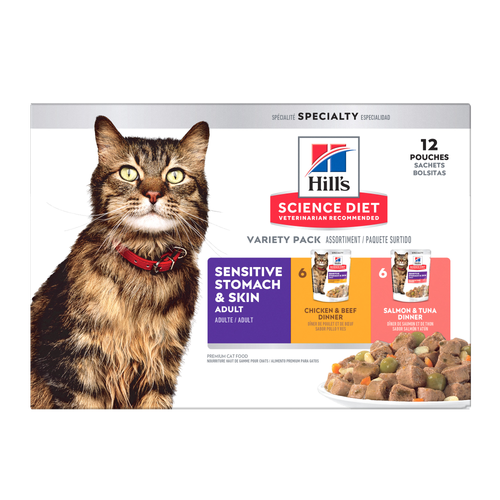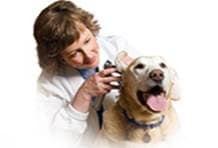
-
Find the right food for your petTake this quiz to see which food may be the best for your furry friend.Find the right food for your petTake this quiz to see which food may be the best for your furry friend.Health CategoryFeatured products
 Hill's Science Diet Adult Healthy Mobility Large Breed Chicken Meal, Barley & Brown Rice Recipe Dog Food
Hill's Science Diet Adult Healthy Mobility Large Breed Chicken Meal, Barley & Brown Rice Recipe Dog FoodAdvanced nutrition shown to support joint health and improve mobility
Shop Now Adult Light Large Breed Chicken Meal & Barley Recipe Dog Food
Adult Light Large Breed Chicken Meal & Barley Recipe Dog FoodFewer calories for less active large breed dogs
Shop Now Adult Large Breed Chicken & Barley Recipe Dog Food
Adult Large Breed Chicken & Barley Recipe Dog FoodSupports healthy joints, lean muscle, and beautiful coat for large breed dogs
Shop NowFeatured products Adult Perfect Digestion Chicken, Barley & Whole Oats Recipe Cat Food
Adult Perfect Digestion Chicken, Barley & Whole Oats Recipe Cat FoodHill's Science Diet's breakthrough nutrition supports ultimate digestive well-being & healthy microbiome
Shop Now Adult Sensitive Stomach & Skin Pouch Variety 12 Pack Cat Food, Chicken & Beef, Salmon & Tuna
Adult Sensitive Stomach & Skin Pouch Variety 12 Pack Cat Food, Chicken & Beef, Salmon & TunaCarefully made, gourmet daily nutrition. Tasty chunks with Salmon & Tuna in a decadent gravy. Supports digestive health, nourishes skin and promotes a lustrous fur.
Shop Now Adult Oral Care Chicken & Brown Rice Recipe Cat Food
Adult Oral Care Chicken & Brown Rice Recipe Cat FoodClinically proven kibble technology to reduce plaque & tartar build-up
Shop Now -
DogCat
- Cat Tips & Articles
-
Health Category
- Weight
- Skin & Food Sensitivities
- Urinary
- Digestive
- Kidney
- Dental
- Serious Illness
-
Life Stage
- Kitten Nutrition
- Adult Nutrition
Featured articles Cat vs. Dog: Which Is the Best Pet for Me?
Cat vs. Dog: Which Is the Best Pet for Me?Learn about important differences between dogs and cats, such as cost & space considerations. These factors can help you decide which pet is best for you.
Read More Adopting a Pet: What You Need to Know
Adopting a Pet: What You Need to KnowLearn the basics of adopting a pet, including where to begin and common questions you should ask yourself when deciding which kind of pet is best for you.
Read More Fun Ideas for Kids and Pets This Summer
Fun Ideas for Kids and Pets This SummerOutdoor summer activities with your dog or cat can be fun for kids, too. Learn how they also teach kids responsibility & creates a bond with their pet.
Read More -


The ear is divided into four parts:
- Pinna - the part outside the head
- External ear canal
- Middle ear - found on the inside of the eardrum
- Inner ear - consists of tubes and nerve structures that transmit sound to the brain. The inner ear also helps control your dog’s balance.
Ear inflammations are common in dogs and have many causes. Dogs, like bloodhounds, with droopy ears and/or a great deal of hair, like the English sheepdog, in the ear canal seem to have the most problems with ear inflammations. These characteristics plus the warm and enclosed nature of the ear canal provide an excellent environment for infectious agents that cause inflammation.
Causes
Bacteria, fungi and ear mites are common causes of ear inflammation in dogs. Allergies, seborrhea, an underactive thyroid gland, trauma, foreign objects (such as plant seeds) and tumors also cause ear inflammation.
Most cases of middle ear and inner ear inflammation are caused by bacteria that pass through a ruptured eardrum. One cause of a ruptured eardrum is overzealous cleaning of the ear canal. Throat infections may also cause middle ear inflammations.
Diagnosis by your Veterinarian
Examination of your dog’s ear canal and eardrum by your veterinarian with an instrument called an otoscope helps determine the cause. If the ear is very painful, your dog may need to be sedated for a thorough exam. Other tests include: microscopic examination of earwax; ear cultures; thyroid hormone studies; X-rays; surgical biopsy.


Tasty Tips
Most ear inflammations can be treated successfully once appropriate diagnostic tests are completed by your veterinarian.
Treatment and Home Care
Ear issues must be treated persistently and specifically, depending on the diagnosis. In some cases, treatment may need to be continued for six weeks or longer.
In most cases your veterinarian will need to clean your dog's ear and remove the hair from the ear canal before treatment will be effective. The use of medications to dry your dog’s ears can be helpful. More aggressive treatment, such as surgery, may be recommended for severe cases.
Home care usually includes administering medications directly into your dog’s ear canal according to your veterinarian’s instructions. Failure to properly administer ear preparations could lead to chronic inflammation, so be sure to follow your veterinarian’s recommendations.
Nutrition
If your dog has an ear issue, your veterinarian may suggest a change in your dog’s food. In some cases, your veterinarian may recommend a therapeutic hypoallergenic dog food to help limit exposure to potential allergens. Such dog foods may include Hill’s® Prescription Diet® brand dog foods.
Unless recommended otherwise by your veterinarian, gradually introduce any new dog food over a seven-day period. Learn how to transition your dog gradually to a new dog food.


One of our staff authors prepared this article for you
Related products

Supports healthy joints, lean muscle, and beautiful coat for large breed dogs

Fewer calories for less active large breed dogs

Fewer calories for less active dogs

Advanced nutrition shown to support joint health and improve mobility
Related articles

A little exercise can make a big difference. Not only will it enhance your pet’s health, but it will beef up your relationship as well.

Learn how to stop your dog from begging at the dinner table, and understand how it can help contribute to his health.

Learn about choosing the right dog food to help ensure your mature older dog will receive the correct balance of nutrition.

Though it may seem like your four-legged friend loves nothing more than to nap on the couch, dogs need regular exercise to stay healthy just like people do.

Put your dog on a diet without them knowing
Our low calorie formula helps you control your dog's weight. It's packed with high-quality protein for building lean muscles, and made with purposeful ingredients for a flavorful, nutritious meal. Clinically proven antioxidants, Vitamin C+E, help promote a healthy immune system.
Put your dog on a diet without them knowing
Our low calorie formula helps you control your dog's weight. It's packed with high-quality protein for building lean muscles, and made with purposeful ingredients for a flavorful, nutritious meal. Clinically proven antioxidants, Vitamin C+E, help promote a healthy immune system.

